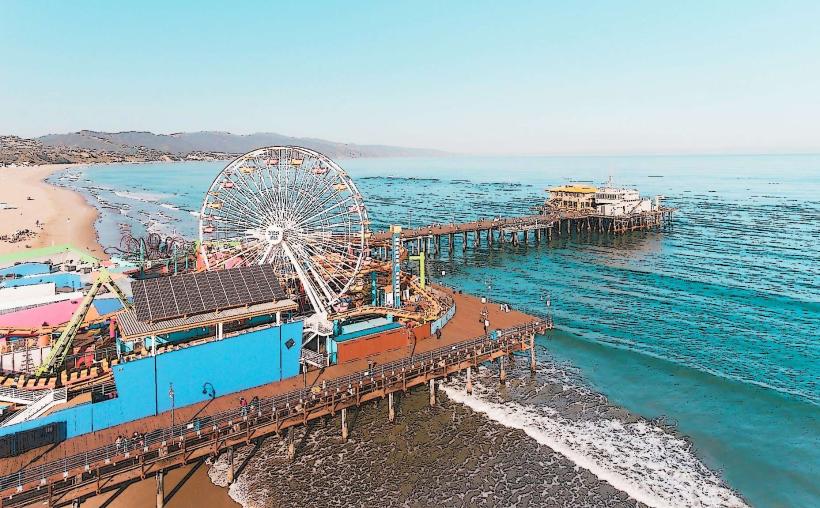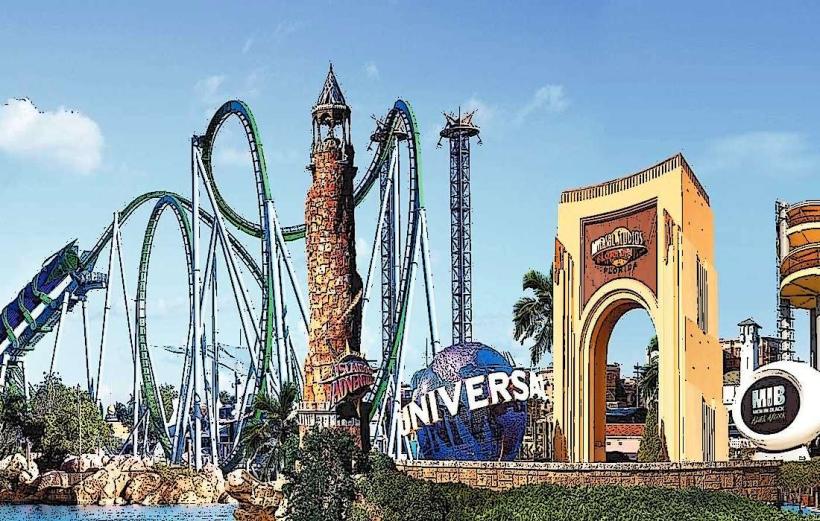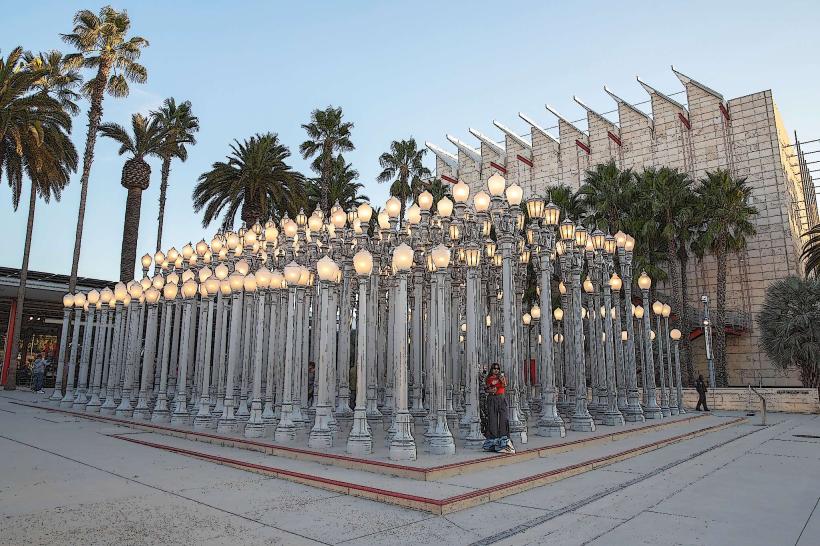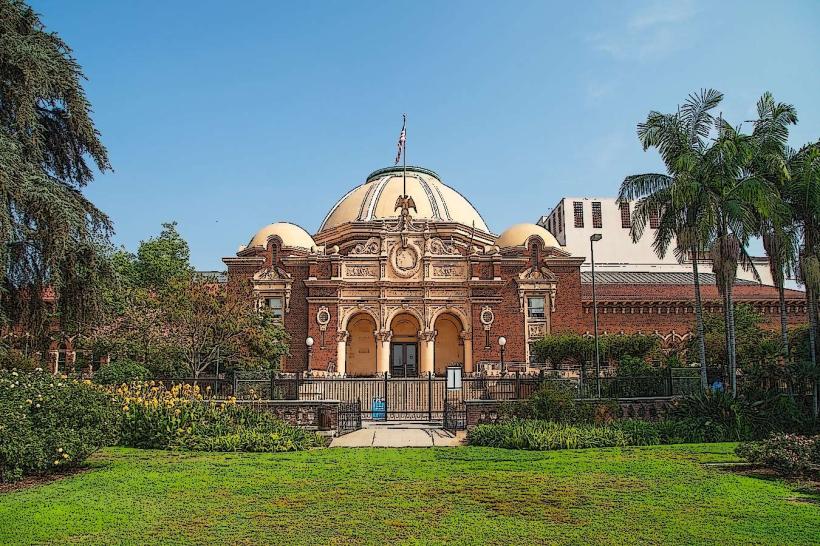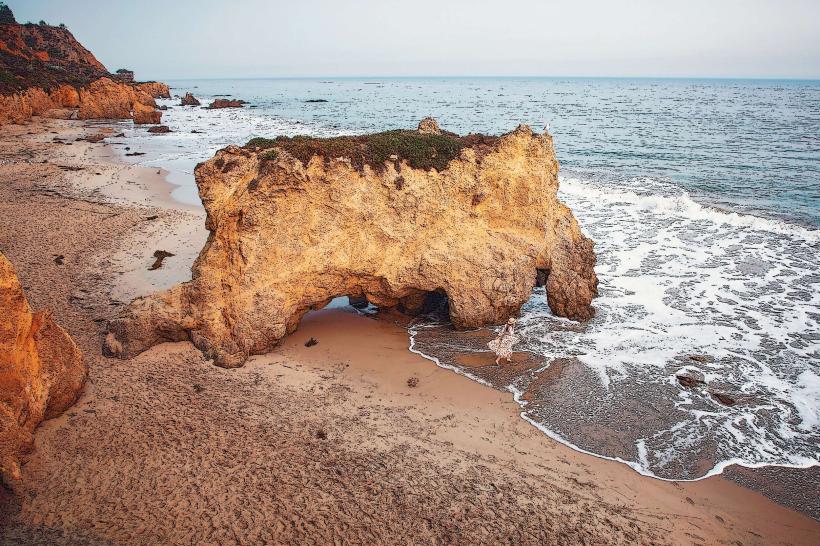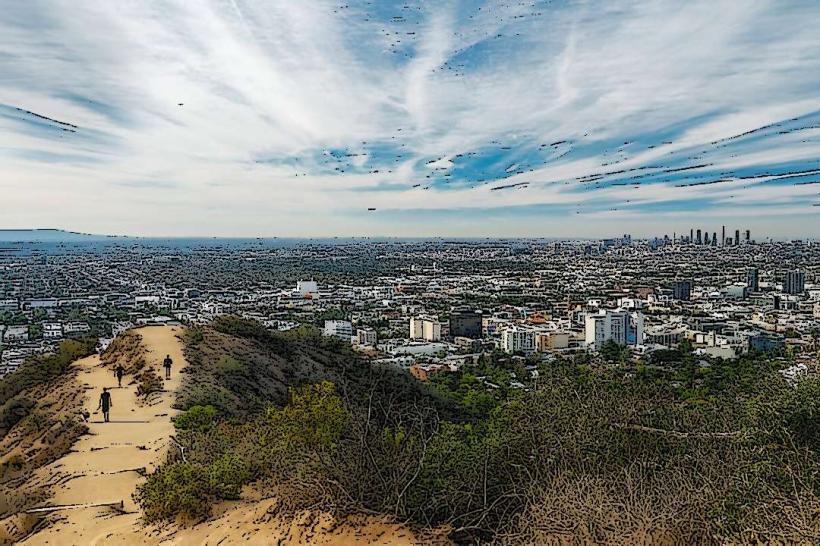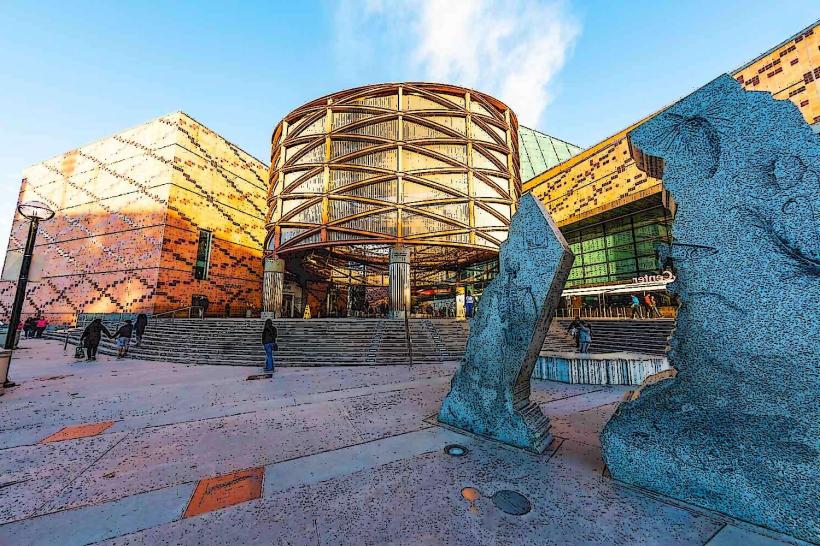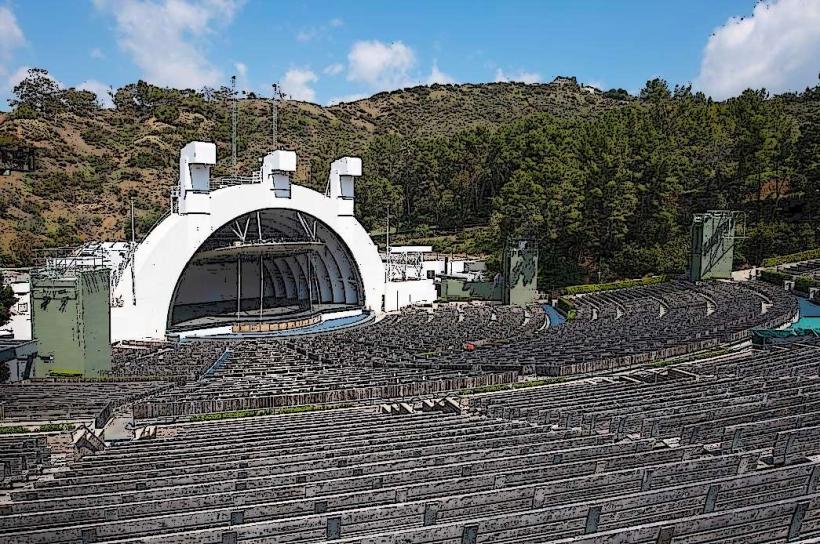Information
Landmark: La Brea Tar PitsCity: Los Angeles
Country: USA California
Continent: North America
La Brea Tar Pits, Los Angeles, USA California, North America
The La Brea Tar Pits in Los Angeles are one of the most significant Ice Age fossil sites in the world, located in the heart of the city at Hancock Park along Wilshire Boulevard. This active paleontological site has yielded millions of fossils over the past century and continues to be a working excavation and research facility. It offers a rare opportunity to witness live digs, scientific labs, and see real fossils from the last 50,000 years.
Overview
Location: 5801 Wilshire Blvd, Los Angeles, CA 90036
Operated by: Natural History Museums of Los Angeles County
Famous for: Exceptionally well-preserved fossils from the Ice Age, including saber-toothed cats, dire wolves, mammoths, and ground sloths
Open: Year-round with regular museum hours
Admission: Ticketed access to the museum; outdoor areas and tar pit displays are free to walk around
What Are the Tar Pits?
The La Brea Tar Pits are naturally occurring asphalt seeps, formed when crude oil from deep underground surfaces through faults. Over millennia, this sticky tar trapped animals that came to drink water or hunt, preserving their bones in remarkable condition. These pits have been forming and trapping animals for tens of thousands of years.
Key Features
1. The Tar Pits (Outdoor Park)
Pit 91: An active dig site with seasonal excavations open to the public, showing real-time fossil recovery.
Lake Pit: A large artificial lake filled with asphalt, featuring life-size sculptures of mammoths to illustrate the prehistoric drama.
Observation areas: Visitors can walk through Hancock Park and view bubbling tar, visible fossils in situ, and informative plaques about each site.
2. George C. Page Museum (Museum at the Tar Pits)
Fossil Halls: Displays of Ice Age animals reconstructed from fossils found on site, including:
Saber-toothed cats
Dire wolves
Columbian mammoths
Harlan’s ground sloth
Project 23 Exhibit: Ongoing fossil processing from a major discovery during construction at the adjacent LACMA garage in 2006. Thousands of fossils are still being cleaned and cataloged from this discovery.
Glass-enclosed Fossil Lab: Visitors can watch paleontologists and technicians at work preparing fossils and cleaning sediment.
3. Interactive Experiences
Augmented Reality and Touchscreens: Used throughout the museum to help visualize the animals, their environment, and the science behind fossil dating.
Children’s Discovery Area: Engaging activities like fossil puzzles and educational videos for young visitors.
Tar Pull Display: Lets visitors feel how sticky tar really is and understand why animals couldn’t escape once trapped.
Educational and Scientific Importance
One of the richest Ice Age fossil sites in the world, with over 3.5 million specimens recovered.
Fossils from over 600 species of animals and plants.
Offers crucial insights into Pleistocene megafauna, extinction events, and environmental changes.
Continues to be an active research facility; scientists use modern techniques to analyze pollen, insects, and microscopic fossils for climate reconstruction.
Visiting Tips
Best Time to Visit: Weekday mornings are less crowded; weekends are popular with families.
Guided Tours: Often available and highly recommended to gain deeper insight into the dig sites and museum collections.
Combined Visit: The Tar Pits are right next to LACMA and the Academy Museum of Motion Pictures—great for a full-day cultural outing.
Cultural Relevance
Frequently featured in movies, TV shows, and documentaries due to its unique urban fossil site setting.
One of the most educational and family-friendly science attractions in Los Angeles.
A rare urban site where science, history, and nature intersect in the middle of a bustling metropolis.
The La Brea Tar Pits are more than just a museum—they are a living laboratory that connects visitors directly to the Ice Age and ongoing scientific discovery. It’s one of the few places in the world where you can watch ancient history being unearthed before your eyes.

